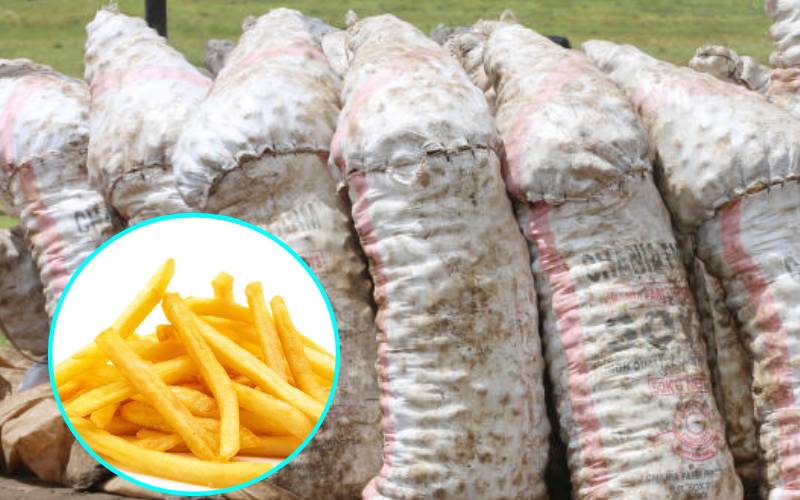×
The Standard e-Paper
Join Thousands Daily

A bag of potatoes in the country’s highest producing area of Elgeyo Marakwet is Sh500. [Kipsang Joseph, Standard]
The price of a plate of chips in some of the fast-food restaurant chains is about Sh250 on average.